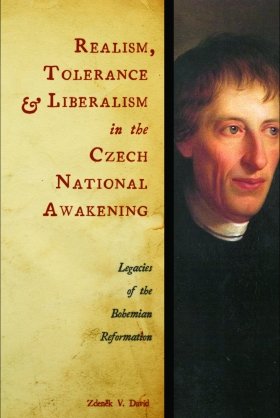Realism, Tolerance, and Liberalism in the Czech National Awakening: Legacies of the Bohemian Reformation

-
Realism, Tolerance, and Liberalism in the Czech National Awakening reevaluates the formation of modern Czech intellectual and political culture. In this meticulous intellectual history, Zdeněk V. David traces the roots of the eighteenth-century Czech National Awakening, not to the Counter Reformation but to the Utraquist church (often called “Hussite”), which arose in pre-Protestant Bohemia. Utraquist ideas advancing realism, liberalism, and tolerance were, he shows, rediscovered, republished, and rearticulated by the Awakeners.
David’s thesis directly challenges the notion that the Czech National Awakening promoted a folkloric, linguistic, Romantic culture. Ultimately, he argues, the Utraquist legacy and its transmission by the Awakeners contributed to democratic vigor in twentieth-century Czechoslovakia.
Zdeněk V. David is a Senior Scholar at the Woodrow Wilson Center and was the Center’s longtime librarian. He is the author of Finding the Middle Way: The Utraquists’ Liberal Challenge to Rome and Luther.
Author
 Browse Insights & Analysis
Browse Insights & AnalysisExplore More
Browse Insights & Analysis
Who Owns Tradition? Ukraine’s Church Controversy
Posted date/time:
The Two Layers of Alexei Navalny
Posted date/time:

